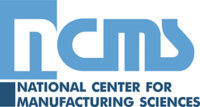CTMA Project #: 140910
Problem: Tire degradation causes maintenance and sustainment issues for numerous industries including: tire manufacturers and distributers, whose tires sit in distribution centers for long periods of time; auto dealers, whose vehicles often sit in open lots exposed to the elements; farmers, whose tractors often sit dormant for half the year; busing lines that need to frequently replace their heavily used bus tires with spares from storage; truckers, whose flat tires are replaced with tires that are exposed to the elements and rarely used; and the Department of Defense (DoD), whose stock of tactical wheeled vehicle tires is constantly depleted due to degradation.
Benefit: If the reliability of tires could be increased, by reducing rotting and decomposition, then that could drastically lower the number of injuries and deaths due to accidents. By lowering the need for medical care, premiums may be reduced as well as time away from work. Companies that depend on their tires for commerce could realize significant savings in tire replacement and the cost of inventory. Commercial transportation companies such as bus services and truck freight companies would have more confidence in their tires and consumers/passengers would feel more at ease. By not needing to replace tires as often, there would be less demand for raw materials and all the damage to the Earth that goes along with planting and maintaining rubber trees and other elements.
Solution/Approach: Phase II will continue working with DoD facilities experiencing this issue to study the condition of tire and rim sets when they are removed from long-term storage. Surface analysis and extraction studies compared to new tires will provide insight into the root cause of tire degradation. Based on the root cause analysis from Phase I, PPG has investigated coatings to mitigate the observed effects of long-term storage. Coupon-level samples have been evaluated for durability in accelerated weathering testing. The durability of the coating itself has also been evaluated.
Impact on Warfighter:
- Reduce maintenance and repair part costs
- Reduce disposal expenses and improve impact on environment
- Improve safety and readiness
DOD Participation:
- U.S. Army TARDEC
Industry Participation:
- PPG Industries, Inc.
- NCMS
Benefit Area(s):
- Cost savings
- Repair turn-around time
- Maintenance avoidance and reliability
- Positive environmental impact
- Safety
- Improved readiness
Focus Area:
- Coatings/corrosion prevention




